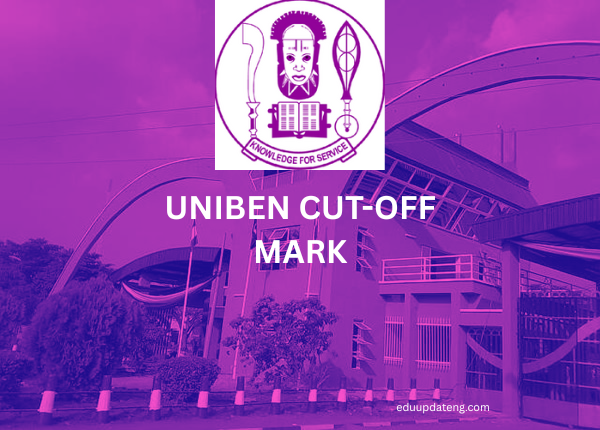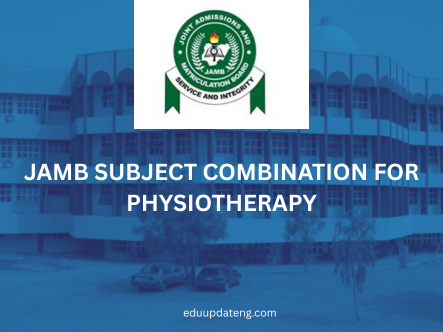JAMB Subject Combination for Medicine and Surgery 2026 – Requirements & Admission Guide

JAMB subject combination for Medicine, MBBS JAMB requirements, Subjects for Medicine in JAMB, O’level requirements for Medicine, Direct Entry requirements for Medicine and Surgery, UTME subjects for Medicine, Medicine and Surgery admission requirements, JAMB 2026 subject combination.
Studying Medicine and Surgery remains one of the most competitive dreams for students in Nigeria. Every year, thousands of UTME candidates apply for Medicine across universities, yet only a few secure admission. One of the reasons many students fail to gain admission is choosing the wrong JAMB subject combination or not knowing the correct O’level and Direct Entry requirements.
If you want to study Medicine in any Nigerian university—whether federal, state, or private—this guide will walk you through everything you must know. From the JAMB subject combination to WAEC/NECO requirements, cut-off mark, best universities offering Medicine, and expert admission tips, this article covers it all.
Let’s begin.
What Is the JAMB Subject Combination for Medicine?
The correct JAMB subject combination for Medicine and Surgery (also called MBBS) is:
- Use of English
- Biology
- Chemistry
- Physics
These four subjects must be selected during UTME registration if you want to study Medicine in any accredited university in Nigeria.
Many students wrongly include Mathematics or replace Biology with Agricultural Science. This can affect your admission chances because universities strictly follow JAMB Brochure guidelines.
These Subjects Are Required for Medicine
Medicine is a science-intensive and highly professional course. The JAMB subjects reflect the foundational knowledge every medical student must possess:
Use of English
Compulsory for all UTME candidates. Doctors must communicate clearly and understand instructions, medical texts, and case notes.
Biology
Introduces human anatomy, cells, tissues, organs, and biological processes required in medical school.
Chemistry
Essential for understanding biochemical reactions, pharmacology, and chemical processes in the human body.
Physics
Necessary for medical equipment operation, radiography, biomechanics, and understanding how the human body works physically.
In summary, these subjects test whether you’re academically prepared for medical studies.
O’Level Requirements for Medicine (WAEC, NECO, GCE)
To study Medicine, you must have at least five (5) credit passes in the following subjects:
- English Language
- Mathematics
- Biology
- Chemistry
- Physics
Some schools also accept Further Mathematics and Health Science as additional subjects, but they cannot replace Biology.
The credits must be obtained in not more than two sittings (WAEC + WAEC, NECO + NECO, or WAEC + NECO).
However, many top universities prefer one sitting for Medicine due to high competition.
Direct Entry Requirements for Medicine
If you are applying for Medicine through Direct Entry (DE), you must meet one of the following:
A’Level / IJMB / JUPEB
Minimum of AAA or AAB in:
- Biology
- Chemistry
- Physics
BSc Holders
Degree in any of the following with a minimum of Second Class Upper (2:1):
- Anatomy
- Physiology
- Biochemistry
- Medical Laboratory Science
- Microbiology (some schools accept)
NCE and ND are not accepted
No Nigerian university accepts ND or NCE for Medicine and Surgery.
JAMB Cut-Off Mark for Medicine 2026
Medicine is the most competitive course in Nigeria. The general JAMB cut-off mark is:
Minimum JAMB Cut-off: 200
However, for Medicine, schools set much higher internal cut-off marks:
|
University Type |
Likely Cut-Off Mark |
|
Federal Universities |
280 – 330 |
|
State Universities |
260 – 300 |
|
Private Universities |
200 – 240 |
Even if you score above 250, your post-UTME performance and O’level grades will determine whether you are shortlisted.
Post-UTME Subjects You Will Write for Medicine
Most universities test candidates in:
- Biology
- Chemistry
- Physics
- English (sometimes)
Your post-UTME score is often combined with your JAMB score to determine eligibility.
Top Universities Offering Medicine in Nigeria
Below are some of the best Nigerian universities where you can study Medicine and Surgery:
Federal Universities
- University of Lagos (UNILAG)
- University of Ibadan (UI)
- University of Nigeria Nsukka (UNN)
- Ahmadu Bello University (ABU)
- University of Ilorin (UNILORIN)
- University of Benin (UNIBEN)
- University of Calabar (UNICAL)
- University of Jos (UNIJOS)
- University of Port Harcourt (UNIPORT)
State Universities
- Lagos State University (LASU)
- Delta State University (DELSU)
- Ekiti State University (EKSU)
- Imo State University (IMSU)
- Kaduna State University (KASU)
Private Universities
- Babcock University
- Afe Babalola University (ABUAD)
- Bowen University
- Igbinedion University
- Madonna University
How Competitive Is Medicine in Nigeria?
Medicine is the most competitive course in the country. Here’s why:
High job market demand
Doctors are needed in hospitals, clinics, research centers, and global institutions.
Prestige and career value
Medicine is viewed as a noble profession.
Limited admission slots
Most universities admit fewer than 100–150 students per year, while thousands apply.
Strict academic requirements
Only students with high UTME scores, strong O’level grades, and excellent post-UTME performance qualify.
Because of this, securing admission requires excellent preparation.
Best Subject Combination for WAEC/NECO for Medicine
To boost your chances, choose these subjects in WAEC/NECO:
- English Language
- Mathematics
- Biology
- Chemistry
- Physics
- Further Mathematics
- Civic Education
- Agriculture or Health Science
The first five are compulsory for admission.
Common Mistakes Students Make When Applying for Medicine
- Choosing wrong UTME subjects
- Using two sittings when applying to a university that prefers one
- Scoring below the expected cut-off
- Poor post-UTME preparation
- Not researching the school’s admission requirements
- Applying to highly competitive schools with low scores
- Combining insufficient O’level grades
Avoid these mistakes to increase your chances.
How to Increase Your Chances of Studying Medicine
Aim for at least 300+ in JAMB
Anything below 280–300 reduces your chances in top universities.
Target 85%+ in post-UTME
Your post-UTME score can compensate for a lower UTME score.
Use one sitting in WAEC/NECO if possible
Many top schools give priority to candidates with one sitting.
Apply to less competitive universities
Examples include:
- UNIJOS
- UNICAL
- IMSU
- EKSU
- ABUAD (Private)
Prepare early
Start studying long before registration begins.
Career Opportunities for Medicine Graduates
After completing medical school and housemanship, you can specialize in areas such as:
- Surgery
- Pediatrics
- Obstetrics & Gynaecology
- Internal Medicine
- Psychiatry
- Radiology
- Cardiology
- Dermatology
- Pathology
- Anesthesiology
- Public Health
- Ophthalmology
- Orthopedic Surgery
Doctors can work in hospitals, research institutes, NGOs, private clinics, and international organizations like WHO and UN.
Read Also: JAMB Subject Combination for Computer Science | UTME, O’Level & Direct Entry Requirements
Choosing the correct JAMB subject combination for Medicine is the first step toward securing admission into medical school. With Biology, Chemistry, Physics, and English, alongside strong O’level requirements and good post-UTME performance, you stand a better chance of studying Medicine in any Nigerian university.
Stay focused, prepare early, and choose your school wisely. Admission is competitive, but with the right preparation, you can achieve your dream of becoming a doctor.





